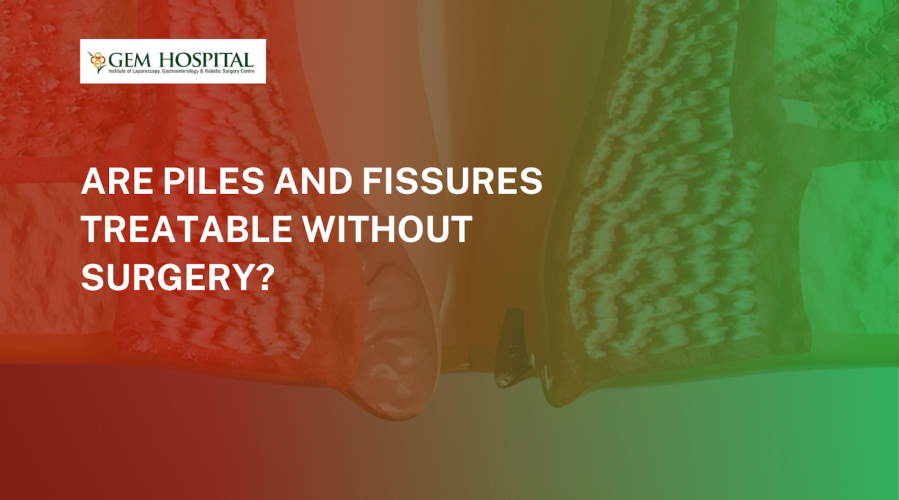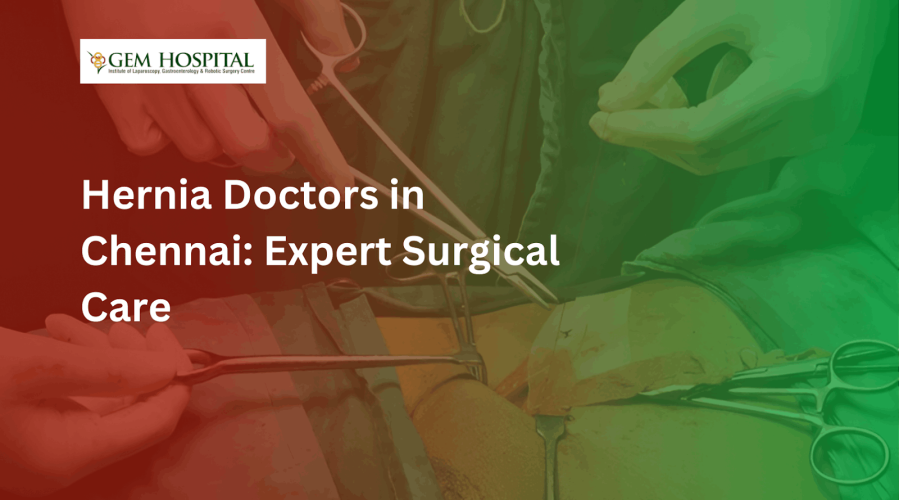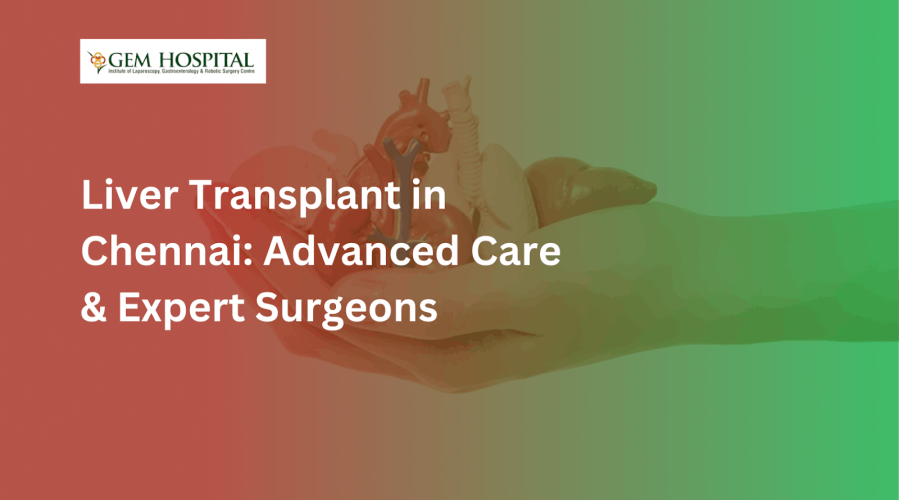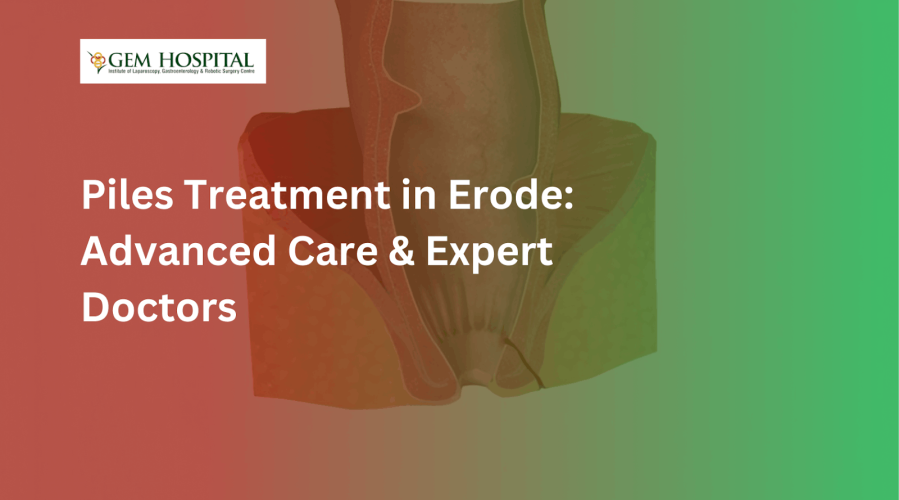Consult experienced hernia doctors in Chennai for expert surgical care. Advanced diagnosis, safe hernia surgery, and faster recovery with specialized treatment.
Are Piles and Fissures Treatable Without Surgery?

Piles (hemorrhoids) and anal fissures are two common anorectal problems that are widespread in the public. With these conditions often comes a considerable amount of discomfort, which can include pain, bleeding, itching, and difficulty with bowel movements. Often the fear of surgery will prevent them from seeking treatment, however, the good news to tell patients is that it is possible for non-operative treatment for piles and fissures, and this can be very successful in many cases.
In this article, we will talk about the causes of piles and fissures, ways they are different, and most importantly the options that exist for non-surgical treatment of piles and fissures so that patients have a few options to consider before turning to surgery.
Understanding Piles and Fissures
Piles are swollen varicose veins inside the rectum or anus and can also be external. Chronic constipation, prolonged periods of sitting, or straining during bowel movements often contributes to this process. Patients may have symptoms of bleeding, swelling, itching, and the sensation of fullness in the anal area.
Fissures are simply small tears or cuts formed in the skin lining of the anal canal. Common causes of fissures are passing hard stools, childbirth, or anal trauma. An anal fissure usually involves severe pain and bleeding upon attempting to have a bowel movement or for minutes to hours after the bowel movement.
Although they are different conditions, the discomfort caused by both can severely affect quality of life. Fortunately, early intervention can reduce the need for invasive procedures.
Is Surgery the Only Option?
Surgery is often considered the only definitive cure for these conditions by many. While this may be true for some patients, it is definitely not all patients. I hope this has shown you that non-surgical treatment for piles and fissures can be very effective; especially if the condition is caught early. In fact they can be improved and resolved in most cases especially at the first stage of the condition. Most piles and fissure cases respond well to dietary changes, increasing dietary fiber intake, medications, non-invasive procedures changes and lifestyle changes.
Let’s have a closer look at some evidence-based non-surgical treatment for piles and fissures that are useful.
Non-Surgical Treatment for Piles and Fissures
- Dietary Changes
One of the most important aspects of both piles and fissures management is improving dietary changes. A diet high in fiber softens stool which improves the ability to have easier less painful bowel movements.
- Include plenty of fruits, vegetables, whole grains, and legumes.
- Drink at least 2-3 liters of water per day.
- Avoid spicy, processed, and fried foods.
Using these simple changes will reduce the amount of strain required by your body to have a bowel movement and reduce the risk of a recurrence; therefore non-surgically manage piles and fissures.
2.Topical Ointments and Creams
There are hydrocortisone, lidocaine or natural herbal creams which are available over-the-counter, which help with the itch of important inflammation. These suggestions are often recommended as relevant to non-surgical treatment of piles and fissures, especially in mild to moderate cases.
3.Warm Sitz Baths
Repeatedly soaking or sitting in a warm bath or bath for 10-15 minutes 3-5 times a day can provide relaxation of the anal muscles, increased blood flow, and discomfort relief. This is a simple, direct, and natural support form of non-operative treatment for piles and fissures.
4.Laxatives and Stool Softeners
Usually, doctors will prescribe stool softeners or mild laxatives to avoid straining. Softener/laxatives help ensure fewer complications on bowel movements and are vital for healing fissures and preventing piles from worsening.
5.Oral Medications
Anti-inflammatories and flavonoid supplements (diosmin and hesperidin) are sometimes used to minimize swelling and enhance the health of veins in piles. Painkillers are helpful for fissures acutely as pain may continue for a few days. These are primarily used for anal fissures. These oral therapies form integral components of a non-operative treatment for piles and fissures in those patients who are not candidates for or do not wish to undergo surgery.
Profoundly sedentary lifestyles and long hours spent sitting can exacerbate piles and fissures. Regular aerobic exercises improve bowel pressure, digestion, and circulation. Yoga stretches examples and pelvic floor exercises are also important for bowel pressure release.
6.Lifestyle Modifications
Sedentary lifestyles and prolonged periods of sitting/reclining can exacerbate both piles and fissures. Regular exercise to improve digestion and blood circulation will help. Yoga and pelvic floor workouts are especially beneficial for these goals.
Similarly, concisely managing how long you sit on the toilet, not ignoring the urge to pass stool, and practicing good anal hygiene are also the premise of nonsurgical management of piles and fissures.
7.Minimally Invasive Procedures (When Needed)
For patients who do not respond to conservative treatment, nonsurgical methods, ie rubber band ligation (internal piles), infrared coagulation or botulinum toxin injection (chronic fissures) are considered non operative alternatives. These are generally done outpatient, with minimal postoperative discomfort and recovery time, and are considered a middle road between medicine and surgery.
When Is Surgery Required?
Surgery is usually only undertaken in serious, chronic, or complex situations where non-surgical measures for piles and fissures have failed. If there are large, quite painful thrombosed piles, especially if acute, or long standing fissures with associated muscle spasm or sentinel tags, it may be necessary to initiate surgical management either by hemorrhoidectomy, or lateral internal sphincterotomy.
In truth, since the advent of an understanding of medical science and with an emphasis on awareness, very few people reach that point and instead recover without invasive treatment.
To summarize, non-surgical options for piles and fissures are not only possible, but are often preferred in the many early and moderate cases. Through a combination of dietary changes, a change in lifestyle, medication, and home remedy, many patients can relieve themselves of the inconvenience of piles and fissures without the operation.
At Gem Hospital, our gastroenterologists and colorectal specialists can offer a personalized plan of care that focuses on a non-surgical approach to your piles and fissures. If you or someone you care about is suffering from anal pain or bleeding or discomfort do not wait!
Make your appointment at Gem Hospital today and begin your journey towards painless non-surgical healing.
Blogs & Article
Get advanced liver transplant treatment in Chennai with expert surgeons, modern technology, and comprehensive care for safe and successful outcomes.
Get advanced piles treatment in Erode with expert doctors. Safe procedures, modern technology, and effective care for fast relief and recovery.


